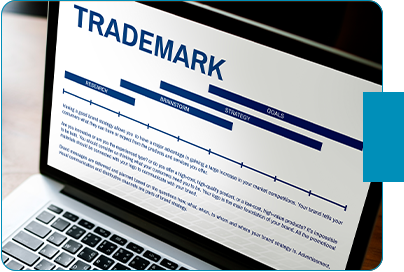Form an LLC in Arizona in a Quick and Hassle-Free Manner
In our effort to help small businesses, we’ve partnered with Tailor Brands to make LLC formation simpler and more accessible. It has helped register over 500k businesses and can help you start an LLC in Arizona with just the state filing fee.
$0 + State filing fees
Free LLC formation service, including review and filing of paperwork with the Arizona Secretary of State.
Access to a team of professionals specializing in different areas, from tax filings to business formation in Arizona.
Additional business services, such as EIN application and others, are available with the paid plans or add-ons.
Things to Know Before Starting an LLC in Arizona
Limited Liability Companies offer a lot of benefits, but you should understand your compliance requirements if you want to stay in good standing with the state. Before you start an LLC in Arizona, understand the state’s LLC rules and regulations.
Let’s discuss some of the important requirements briefly.
- Unlike most other states, the state of Arizona does not require LLCs to file annual reports or pay annual filing fees.
- Filing Arizona articles of organization costs merely $50 and any amendments thereafter cost only $25.
- Arizona provides quick filing options which cost extra, from $25 extra for expedited filing to $400 for 2-hour filing.
- If, for any reason, you lose your LLC status and are not in good standing, you’ll face a penalty of $100 for reinstatement.
You can compare the prices for forming and running an LLC with that of an S-Corp or Sole Proprietorship to choose the best business structure. Overall, Arizona is a business-friendly state with low tax rates and limited regulations.
20+
Tools and Services
4.5 Stars
TrustPilot Rating
5-Day
Phone Support
24/7
Email Support
How to Form an LLC in Arizona
Forming an LLC requires a number of steps and is not limited to just filing your articles of organization with the relevant state department. You also need to choose a name, appoint a registered agent, and do a lot more before you start your operations.
Here is a step-by-step guide on how to form a Limited Liability Company in Arizona.
Find a Name for Your Business
Start the LLC formation process by finalizing a name for your company. This should be unique, memorable, and relevant to your business. It should also follow the state’s naming conventions, such as using the term LLC or its variations in the name.
To ensure your chosen business name is unique, you need to check the state database and see if any other business is using the same name. If not, you can use the name and if you find a match you’ll need to choose a different name for your LLC in Arizona.


Reserve Your Business Name
If you find that your chosen business name is available for use in Arizona, but you’re not yet ready to start the LLC formation process, you can consider reserving your name. This will ensure that no one else can register that name for a period of 120 days.
You need to file your application and pay a filing fee of $10 to reserve your business name. The state of Arizona provides expedited, same-day, next-day, and 2-hour processing options to choose from that can cost you $35 to $400 extra.
Appoint an Arizona Registered Agent
Every business needs a registered agent who is available during business hours at the registered address to receive all business correspondence and legal notices. The agent must have a local address in the state and can be an individual or a company.
While you can be your own registered agent, but that is not recommended as it will limit you to your office premises during weekdays. It’s better to hire a professional who can receive documents on your behalf and inform you of any upcoming deadlines.


Select the Type of LLC
If you intend to do business in Arizona and don’t have an established business in other states, you’ll likely need to form a domestic LLC. If, however, you want to expand your existing business to Arizona, you’ll need to form a foreign LLC in Arizona.
You will also need to decide whether you want to form a single-member LLC or a multi-member LLC in Arizona. Next, you need to decide whether you want a member-managed LLC or manager-managed LLC, depending on your requirements.
Draft an Arizona LLC Operating Agreement
Every business needs rules for how the company is to be managed and run, and an LLC operating agreement lays down those rules. It covers everything from how day-to-day decisions are to be taken to the ground rules for succession planning.
The operating agreement also details the roles and responsibilities of members and their respective shares of ownership. Make sure that your LLC operating agreement is as comprehensive as possible and covers all the governance guidelines.


File Your LLC Articles of Organization
This is the most important step in the process as this is where you officially register your business with the state. For that, you need to file your Articles of Organization with the Arizona Secretary of State and pay the required regular filing fee of $50.
You can submit your application online, via mail, via fax, or in person. If you want expedited processing, then those options are available at an extra cost. You need to pay a total of $85 to the Secretary of State’s office if you want expedited processing.
Get a Federal Employer Identification Number
An Employer Identification Number or EIN is a business’ identity, just like a Social Security Number is for individuals. This is what the government and the Internal Revenue Service (IRS) use to identify and track a business for tax purposes.
EIN is required for several other business purposes as well. You will, for example, need an EIN to start a business bank account, get business funding from investors and banks, hire employees, and pay employer taxes, among other things.


Open a Separate Bank Account for Your Business
When you run a business, it’s very important to keep your business and personal finances separate. This ensures that your personal assets are protected from business debts and liabilities. It also helps you manage your business finances.
Opening a business bank account that is separate from your personal bank account is a great way to achieve this. Also, having a banking history with a bank helps build your credibility, which makes it easier for you to secure business loans and funding.
Acquire Business Licenses and Permits
Even after you officially register your business by filing your Arizona Articles of Organization, you can’t start operations until you meet some other requirements. This entails obtaining all necessary permits and licenses as required by the state.
The licenses and permits you’ll need will depend on your type of business and varies from state to state. You’ll need to obtain federal, state, and county licenses and permits. So, check the requirements for your business before you start your LLC in Arizona.


Choose How You Want Your LLC in Arizona to be Taxed
The best part about forming an LLC in Arizona is that you can choose how you want your business to be taxed. It can be taxed as a Sole Proprietorship, Partnership, S-Corp, or C-Corporation, offering a lot of flexibility when it comes to business taxation.
By default, an LLC is considered a disregarded entity and the business profits pass to the LLC owners, who are then taxed on their personal incomes. Only LLCs that choose to be considered a Corporation for tax purposes, need to pay corporate income taxes.
File for a DBA (Optional)
Limited Liability Companies need to follow certain naming conventions when registering a business name. This often leads to long and complicated names, which include terms like “LLC”, “limited company”, “limited”, “limited liability company”, etc.
If you want a short and memorable name for conducting your day-to-day business, you can file a DBA (doing business as). This allows you to register a fictitious name that is good for branding purposes and easy for your customers to remember.


Get a Trademark (Optional)
A trademark is a great way of protecting your business name, logo, and other brand elements from being copied or used by other businesses in the state. If you have a slogan or brand tagline, you get a trademark to protect those elements as well.
You can apply for trademarks on both federal and state levels, depending on your requirements. A federal trademark will prohibit businesses across the states from using your logo, slogan, name, or anything else that you have a trademark for.
Create a Business Website (Optional)
Every business must have a website in this digital age. Your website is not only the most credible source of information for your business but also a way of generating leads for your business. So, make sure that you invest in an SEO-friendly website.
Start by securing a domain name that matches your business name or assumed name. You can use our partner GoDaddy’s web design and marketing services for registering a domain name, getting a hosting solution, and building a website.


Maintain Your Good Standing with the State
While the process of forming an LLC in Arizona ends here, maintaining that status is an ongoing process. You need to follow the rules and regulations set forth by the state of Arizona for LLCs and stay in compliance to keep your LLC status.
Some important compliance requirements include paying taxes on time and filing annual reports, if your LLC is taxed as a Corporation. You also need to renew your permits on time and meet all other compliance requirements for Arizona LLCs.
Why Should You Outsource LLC Formation Services?
While forming an LLC in Arizona is not a complicated process, it can still be overwhelming for first-timers. Outsourcing to a professional not only saves time, but also makes the process smooth and hassle-free. Here are some reasons why you should outsource.

Smooth Process
A professional would know exactly what they’re doing as this is their job. This means that they’ll know the process in and out and will only require minimal effort from your side—providing business information and documents.

100% Accuracy
When your paperwork is done by professionals, you can rest assured there will be no mistakes that can get your application rejected or delayed. Plus, you don’t need to deal with the complex paperwork yourself.

Quick Filing
Preparing, reviewing, and filing your application yourself can be a lengthy and overwhelming process. When you hire a professional, they can complete the process quickly and even file your application within the same day.
Benefits of Starting an LLC in Arizona
LLCs are the most popular business structure, preferred by small and mid-sized businesses. It blends the best features of different business structures and offers a complete package for small businesses.
Here are some of the key benefits of forming an LLC in Arizona.
Personal Liability Protection
If your LLC in Arizona fails to pay its debts, the lenders can go after the business’s bank accounts and assets, but owners are protected. Lenders and investors can’t go after LLC members and their personal assets to recover the business debts and liabilities.
Similarly, LLC members are not held personally liable for the wrong-doings done by co-owners or employees, or any other business liabilities. As such, an LLC’s assets can be seized to settle a judgment if the LLC is charged with negligence or wrong-doing.


Flexible Tax Structure
As mentioned previously, Limited Liability Companies can choose how they want to be taxed. They can choose to be taxed as a Sole Proprietorship, a Partnership, or an S-Corp. To get the federal S-Corp tax status you need to file Form 2553 of the IRS.
By default, an LLC will enjoy the benefits of pass-through taxation as it is considered a disregarded entity. This means that the business income will pass to the LLC members. The members then pay personal income taxes on their income from various sources.
Affordable
It is much easier and cheaper to form an LLC in Arizona than to form a Corporation. You just need to pay $50 to file your Arizona Articles of Organization with the Secretary of State. And if you want expedited processing, you can get that for an extra $35.
A Limited Liability Company is also more affordable to run. You don’t need to file an annual report for your LLC in Arizona, so no annual filing fee requirements. The annual expenses of maintaining your LLC status are also quite reasonable.


Less Paperwork
As mentioned above, forming an LLC in Arizona is easier than forming a Corporation as it requires less paperwork. Given the more formal structure of a Corporation, the process of formation is more complex and requires more paperwork and documentation.
With LLCs, you don’t need to hold meetings of the board or take minutes, further reducing the paperwork required to run an LLC in Arizona. And, as mentioned above, LLCs don’t need to prepare and file annual reports in Arizona, so that’s also a relief.
Ease of Management
LLCs are easy to form and manage, as there aren’t a lot of ongoing compliance requirements or strict rules of governance. In fact, LLC members themselves decide how they want to run their business by crafting a detailed LLC Operating Agreement.
There’s no need to hold regular meetings or organize a vote for making strategic decisions. The day-to-day decision-making process is simpler and follows the rules set forth in the operating agreement. LLCs are quite easy to run from a management standpoint.


Ownership Flexibility
LLCs in Arizona impose fewer restrictions on who can and can’t be a member. Unlike other business structures, like an S-Corporation, there are no strict restrictions on having non-residents as LLC members, which is a good thing for many entrepreneurs.
Also, the LLC members can decide how the succession planning process will work and how profits will be distributed among members. This offers a lot of flexibility to limited liability companies that is not available to many other business entities.
Ability to Hold Assets
An LLC in Arizona is considered a legal entity, separate from its owners or LLC members, This bestows certain legal rights to Arizona LLCs that other entities like Sole Proprietorships or Partnerships don’t enjoy. One such right is the ability to hold assets.
Limited liability companies can buy real estate for offices and warehouses, equipment and machinery, and other business assets in the name of the business, not the owners. This way, all the business assets can be kept separate from members’ personal assets.


Ability to Enter into Contracts
An Arizona LLC has legal rights that allow it the ability to enter into business contracts, without involving the members. So, investors, lenders, and other stakeholders can directly negotiate and enter into contracts with the business, not an individual.
How does it benefit you? Well, this allows LLCs to secure business funding in the name of the business. In case the business fails to pay off these debts, the LLC members do not need to worry about protecting their personal assets to pay off these debts.
Tailor Brands’ Pricing Plans for Arizona LLC Formation
Tailor Brands offers numerous paid business services, other than the free LLC formation service. You can opt for its fixed plans or go a la carte with individual services.
Here’s an overview of all the services and plans you can choose from.
Lite
This is the free plan that includes Arizona LLC formation and not much else.
This is what you get with Tailor Brands’ free plan:
- LLC Formation: The Tailor Brands team is there to assist you throughout the entire process of registering your LLC in Arizona. They will take care of all aspects, from preparing documents to completing the LLC application. You just need to supply all the necessary information and documentation for the filing process.
Price: Free + State Filing Fees
For anyone seeking a straightforward, no-cost LLC application service, this is a great option. While it lacks extra frills, it streamlines the process of forming an LLC in Arizona.


Essential
This plan offers LLC formation, along with the following:
- Annual Compliance: If you are managing an LLC in Arizona, it is crucial to comply with the state’s regulations. This includes submitting annual reports and ensuring timely tax filings. Failure to comply with these obligations can lead to severe penalties. The team at Tailor Brands will help you stay compliant by sending reminders and annual compliance notifications to avoid any missed deadlines.
- 2-Day Processing: Another advantage of choosing this plan is the prompt application processing. With this plan, you can expect your application to be filed within two business days. This is a major advantage as it will ensure your Arizona LLC is formed as quickly as possible and you can start operations soon. Most service providers take much longer than this to process LLC applications.
- LLC Operating Agreement: When you opt for the Essential plan offered by Tailor Brands, you will get assistance in drafting an operating agreement for your LLC in Arizona. Tailor Brands’ team will help you draft a detailed agreement that includes all important details. This includes the roles and responsibilities of members, the process for making decisions, rules for conflict resolution, and more.
- $30 Amazon Gift Card: One added perk of choosing this plan is that you get a complimentary Amazon gift card for $30. This is just something that’s good to have, but not the sole reason for choosing this plan. So, if you opt for this plan then you may as well use it. It works like any typical gift card and allows you to buy anything from the ecommerce store for the specified $30 amount.
Price: $199 per year
Elite
The Elite plan includes numerous business services, apart from what you get with the Essential plan.
Here are the additional services you can expect with this plan.
- Free Web Domain for 1 Year: Every successful business needs a website to reach its target audience online. After all, it’s the first place people look for information about a business. With this plan, you’ll get a free web domain, matching your business name, that you can use to host a business website.
- DIY Website Builder: To ensure your website is user-friendly and informative, you need to pay special attention to its design and layout. Tailor Brands will provide you access to a DIY website builder that you can use to create the perfect website. You’ll have control over the entire site design and layout.
- Business Tools: Tailor Brands offers multiple tools with this top-tier plan. You can design up to 8 free business logos, get a digital business card, and get access to a social media post maker. These are just some of the many benefits of choosing this plan over the Lite and Essential ones.
- $50 Amazon Gift Card: If everything else discussed above is not enough to convince you of the value provided by this plan, then this might be an added perk to convince you. You get an Amazon gift card in the amount of $50, which you can use to buy practically anything from the Amazon store.
Price: $249 per year


Additional Services
Tailor Brands paid plans don’t include all the services it offers. There are numerous services that you can get individually for a cost, of course.
These are the add-on services Tailor Brands offers:
- Business Licenses: It is likely that you will need several licenses and permits in order to run a business in Arizona. Tailor Brands’s team will help you discover the prerequisites for your LLC in Arizona and acquire the required business licenses expeditiously.
- Employer Identification Number: If you plan to run an LLC in Arizona and hire employees for your business, you will need an EIN or tax ID. Tailor Brands offers this service as an individual paid service. It will help you file the federal EIN application and get one quickly.
- Business Bank Account: Every business should have a business bank account to keep the personal and business finances separate. This is important for liability protection for members. With Tailor Brands’ help, you can find the best banking options and accounts for your business.
- Business Insurance: When you’re running an LLC in Arizona, you’ll need to insure your business from various unforeseen circumstances. Tailor Brands’ team will help you identify the types of business insurance policies you’ll need and get those from the right service providers.
- Tax and Accounting Services: Tailor Brands also offers tax and accounting services for businesses. From helping you file your income tax returns to helping you with maintaining perfect books for your business, you can expect all the help you’ll need with taxation and accounting.
- Invoicing: This is another important business service that Tailor Brands offers to help new businesses run successfully. Its invoicing tool will help you create customized invoices and send them to clients to get paid on time. It will also help you create and send proposals.
Price: Prices differ per service
Why Should You Choose Tailor Brands to Form an LLC in Arizona?
Tailor Brands is a leading LLC formation services provider trusted by over 500k businesses. It provides an excellent customer experience and makes the LLC formation process seem like a breeze. Here’s why you should choose Tailor Brands.

Zero Costs
While other companies charge several hundred dollars for the same service, Tailor Brands does it with zero service-fees. You get all the perks of a professional service provider by paying just the state fee.

Expert Assistance
When you work with Tailor Brands you get access to a team of experts in various fields from tax planning to business banking. You will get expert advice and consultation on various aspects of your business.

Stress-Free
The team at Tailor Brands will prepare, review, and file your Articles of Organization and ensure that the process goes smoothly. You’ll get a hassle-free and stress-free experience.
FAQ
The filing fee for forming an LLC in Arizona is merely $50. The expedited filing fees vary depending on how quickly you want your application to be processed. Here are the extra costs for quick-processing:
- Expedited processing: $35
- Next-day service: $100
- Same-day processing: $200
- Two-hour processing: $400
If you hire a business formation service provider that doesn’t offer free services like Tailor Brands, it will cost you even more. If you choose to do it yourself or hire Tailor Brands, your costs will be limited to those mentioned above.
Here is the step-by-step process of forming an LLC in Arizona
- Find a Name for Your Business: Choose a relevant business name and check the state database to ensure it’s not being used by any other business.
- Reserve Your Business Name: Reserve your name with the state for 120 days, if you foresee any delays in starting your LLC registration process in Arizona.
- Appoint an Arizona Registered Agent: Hire the services of a local registered agent, either individual or company, with a physical address in Arizona.
- Select the Type of LLC: Decide whether you want to form a single-member LLC or a multi-member LLC, and if you want it to be member-managed or manager-managed.
- Draft an Arizona LLC Operating Agreement: Create a comprehensive operating agreement detailing how you want your LLC to run and the decision-making process.
- File Your LLC Articles of Organization: Register your LLC with the state by filing your Arizona Articles of Organization with Arizona the Secretary of State.
- Get a Federal EIN: Obtain a Tax ID or employer identification number (EIN) as it will be useful for a variety of business purposes, not just for paying taxes.
- Open a Separate Bank Account for Your Business: Go through the available options and choose a good bank to open a business bank account.
- Acquire Business Licenses and Permits: Find out the licensing requirements for your state, county, and type of business, and acquire the required licenses.
- Choose How You Want to be Taxed: Choose how you want your LLC in Arizona to be taxed. You can choose the default status or even go for the federal S-Corp tax status.
- File for a DBA (Optional): If you want a shorter, more marketable name for your business, file a DBA to register an assumed name or fictitious name.
- Get a Trademark (Optional): Protect your brand assets by applying for a trademark, which prohibits other businesses from using your name, logo, etc.
- Create a Business Website (Optional): No business can be successful in today’s digital era, without having a good website, so get one for your business.
- Maintain Your Good Standing with the State: Keep your business in good standing with the state and maintain your status by following all rules and regulations.
Here are some of the key benefits of forming an Arizona Limited Liability Company:
- Personal Liability Protection: An LLC in Arizona offers limited liability protection for its members. This protects their personal assets from being seized to pay off business debts.
- Flexible Tax Structure: LLCs in Arizona can choose to be taxed as an S-Corporation or other business entities.
- Affordable: The formation and maintenance costs of an Arizona LLC are much lower compared to that of an Arizona Corporation.
- Less Paperwork: LLCs require less paperwork to form and run than a C-Corporation. In Arizona, an LLC is not even required to file an annual report.
- Ease of Management: It is much easier to manage limited liability companies than it is to manage a C-Corporation or even an S-Corporation.
- Ownership Flexibility: There are fewer restrictions on who can be a member of an LLC and how many members an LLC can have, compared to other entities like an S-Corp.
- Ability to Hold Assets: LLCs can buy land, equipment, and other assets in its name. These will be separate from members’ personal assets.
- Ability to Enter into Contracts: LLCs are legal entities that can enter into agreements and contracts with various stakeholders and organizations.
By default, LLCs in Arizona are considered pass-through entities, which means that business profits pass to LLC members, who then pay personal income taxes.
So, no, LLCs in Arizona do not need to pay corporate income taxes. Only the LLC members are taxed on their personal incomes from the business and any other sources.
However, if you choose for your LLC to be taxed as a Corporation, you may then have to pay corporate taxes.
Other taxes like self-employment taxes and sales tax are also applicable, depending on your type of business.
Yes, Arizona is a fairly business-friendly state with low tax rates and fewer compliance requirements. LLCs in Arizona, for example, don’t need to file annual reports or pay annual filing fees for the same.
The formation process is simple and affordable, and the state offers multiple quick-processing options at an extra cost. This means you can get your LLC in Arizona registered within the same day, which is a rare thing that not many states offer.
Overall, if you are an Arizona resident and want to start an LLC in the state, you don’t need to consider other states and can go ahead and form your LLC with ease.
Form an LLC in Arizona for Free with Tailor Brands
Choose Tailor Brands for forming your LLC in Arizona and get many other additional services for free. The team at Tailor Brands makes LLC formation simple and hassle-free for you.
$0 + State Filing Fees
